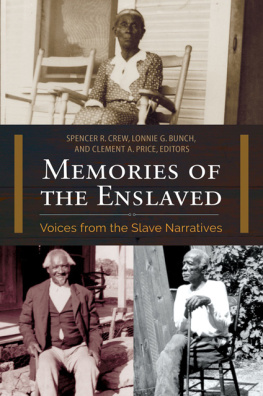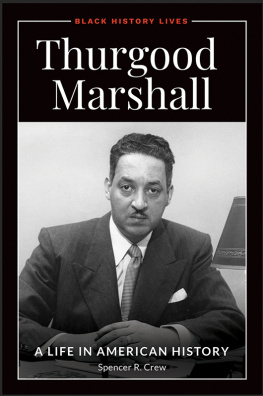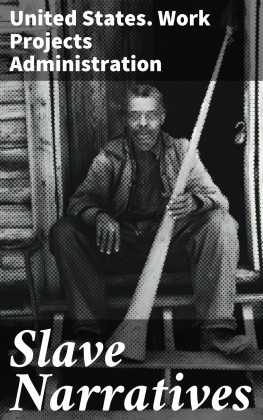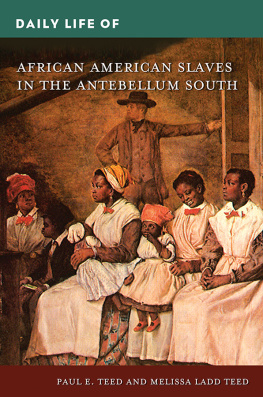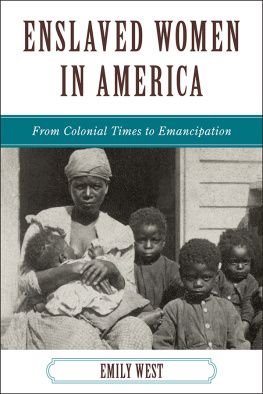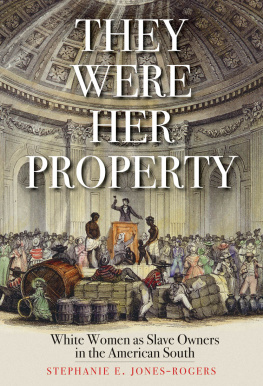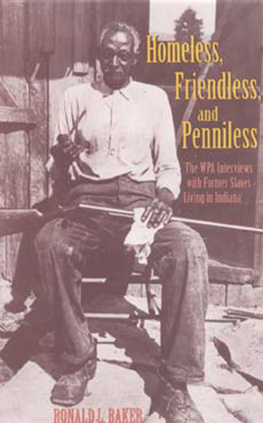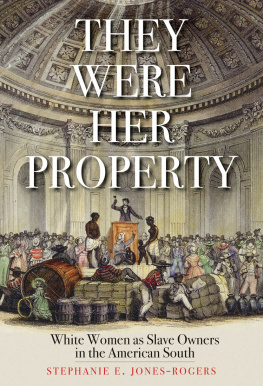

Copyright 2015 by Spencer R. Crew, Lonnie G. Bunch III, and Clement A. Price
All rights reserved. No part of this publication may be reproduced, stored in a retrieval system, or transmitted, in any form or by any means, electronic, mechanical, photocopying, recording, or otherwise, except for the inclusion of brief quotations in a review, without prior permission in writing from the publisher.
Library of Congress Cataloging-in-Publication Data
Memories of the enslaved : voices from the slave narratives / Spencer R. Crew, Lonnie G. Bunch III, and Clement A. Price, editors.
pages cm
Includes index.
ISBN 978-1-4408-3778-4 (hardcover: alk. paper)ISBN 978-1-4408-4178-1 (pbk.: alk. paper)ISBN 978-1-4408-3779-1 (ebook) 1. Slave narrativesUnited States. 2. SlavesUnited StatesSocial life and customsSources. 3. SlavesUnited StatesSocial conditionsSources. 4. SlaveryUnited StatesHistorySources. 5. African AmericansHistorySources. 6. African AmericansInterviews. I. Crew, Spencer R., 1949- editor. II. Bunch, Lonnie G., editor. III. Price, Clement Alexander, 1945-2014, editor.
E444.M46 2015
306.3620973dc23 2015018388
ISBN: 978-1-4408-3778-4 (hardcover)
ISBN: 978-1-4408-4178-1 (paperback)
EISBN: 978-1-4408-3779-1
19 18 17 16 15 1 2 3 4 5
This book is also available on the World Wide Web as an eBook.
Visit www.abc-clio.com for details.
Praeger
An Imprint of ABC-CLIO, LLC
ABC-CLIO, LLC
130 Cremona Drive, P.O. Box 1911
Santa Barbara, California 93116-1911
This book is printed on acid-free paper 
Manufactured in the United States of America
Contents
Preface
The slave narratives created by the Federal Writers Project (FWP) of the U.S. Works Progress Administration (WPA) happened almost by accident. The original assignment of the FWP in 1936 was to capture and preserve the life stories of older residents of the country. It was discovered in this process that the testimonies offered by a number of the African Americans interviewed were from persons who had been enslaved. They were among the last survivors of that institution and had valuable perspectives to share about the impact slavery had on their lives. They talked about slavery from the point of view of the enslaved, which offered a unique view into how it functioned and how it affected their lives. Their testimonies were both touching and frightening. The narratives collected from 17 states, mainly in the South, were quickly recognized as a valuable resource for understanding slavery from the perspective of the enslaved.
Upon completion of the project, the final collection of more than 2,300 individual interviews was sent to the U.S. Library of Congress, where the interviews were organized by state. While it was good to have the material in one location, this presented two challenges. First, the collections location at the Library of Congress limited access to the material as one had to travel to Washington, D.C., to use it. Second, the state-by-state organization made identifying common themes within the narratives a painstaking process, as one had to go through the individual testimonies to reveal commonalties among them. Although the Library of Congresss slave narrative collection is now online, it is searchable only by name of the person interviewed, by state, or by keyword.
Moreover, many narratives did not reach the Washington office of the WPA or the Library of Congress. They were residing in other state collections. (There were various reasons for this, possibly including deliberate suppression.) In 1973, George P. Rawick, with Ken Lawrence and Jan Hillegas, began their search for any remaining narratives. The testimonies they found were compiled in 22 volumes, published by Greenwood Press in 1978 and 1979, called The American Slave: A Composite Autobiography. This massive scholarly undertaking, which included both the narratives from the Library of Congress collection and the additional discovered narratives, yielded 4,000 documents, nearly 2,000 more than the number in the Library of Congress collection.
SCOPE
The intent of Memories of the Enslaved: Voices from the Slave Narratives is to ameliorate some of the impediments in the use of the slave narratives for researchers and educators. The editors of this volume have reviewed the narratives and selected approximately 650 excerpts from slave narratives for this book. These excerpts are arranged by topic in seven chapters, providing a very different point of entry into the holdings. The book draws from both the Library of Congresss materials and from the additional narratives Rawick discovered in other archives.
To craft this topical framework, the original interviews were systematically reviewed and pertinent portions of the testimonies were extracted for their emphasis on specific issues. The goal was to identify those ideas that reoccurred most often in the discussions with the enslaved and to highlight those concepts in the interviews. What most often dominated these conversations were discussions focused on family, running away, childhood, work, punishment, culture, gender, and emancipation. Consequently, these topics are the organizational foundation for this exploration of the slave narratives. Each chapter is devoted to a major topic and divided into three to six subtopics, each of which features introductory context and numerous excerpts from the narratives of the formerly enslaved. Within subtopics, narratives are arranged alphabetically by the names of the formerly enslaved.
offer introductory background, context, and explanation for the narrative excerpts that illustrate the following topics:
reveals a community culture of the enslaved, including religion (both approved and hidden worship), recreation and celebrations, weddings, funerals, and music and other forms of cultural expression.
has recollections of childhood by the enslaved, from their work in the fields and homes of slave masters to their games.
features excerpts from narratives about the enslaved family and its powerful challenges from the institution of slavery.
describes the particular issues and perils that constantly faced enslaved women.
informs readers about work for the enslaved, from backbreaking field and domestic work to skilled craft and labor, as well as being hired out to other plantations or homes.
provides the difficult narratives, those about the severe and often sadistic punishment and threats that most enslaved people experienced or were threatened with.
tells the stories of those who attempted escape, those who succeeded in escaping, and what happened to enslaved people upon emancipation.
Within the seven chapters, it is not surprising that family, work, abuse, and running away were reoccurring themes in the conversations of the enslaved. These concepts were important factors that were central to the enslaveds existence, gave meaning to their lives, or offered emotional or physical ways to escape from their enslaved circumstances. Work dominated everything else in the existence of the enslaved. It was the most important contribution they made to the slaveholders who controlled their lives. The tasks they performed varied from geographic location to geographic location, but work defined their condition. Physical abuse was linked to work as a means of extracting as much productivity as possible from the enslaved. It was extraordinary if an enslaved person didnt at some point experience physical abuse, witness the abuse of someone close to him or her, or suffer through separation from a loved one as a result of a sale. When a person decided to take the risk of running away, these experiences were often the catalysts. The penalties for running were severe enough that the choice was not made casually but was driven by extraordinary motivations.
Next page
